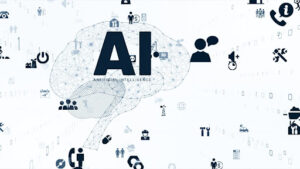As a seasoned blogger, I’ve delved into the intriguing world of AI and its impact on shaping the ideal man and woman. In today’s digital age, artificial intelligence is revolutionizing how we perceive beauty standards and gender norms. The concept of AI creating the perfect human form raises thought-provoking questions about societal ideals and technological advancements.
Imagine a world where algorithms determine the epitome of physical attractiveness and personality traits. AI’s ability to analyze vast amounts of data can redefine what it means to be the “perfect” man or woman. Join me as we explore the fascinating intersection of artificial intelligence and human perception, where the boundaries between reality and virtual ideals blur.
Ai Perfect Man and Woman
Exploring how AI influences societal beauty standards and gender norms, I delve into the convergence of technology and human perception, contemplating how artificial intelligence redefines the essence of physical perfection. As data-driven analysis reshapes traditional ideals of beauty, the boundary between virtual representations and reality becomes increasingly blurred, sparking a discourse on the evolving concept of attractiveness in the digital era.
Role of Artificial Intelligence in Defining Beauty Standards

Exploring the role of Artificial Intelligence Ai Perfect Man and Woman reveals a fascinating interplay between technology and societal norms. AI algorithms analyze vast datasets to create idealized images of both men and women. These digitally enhanced representations influence perceptions of beauty and attractiveness in contemporary society.
By leveraging AI, beauty standards are constantly evolving, shifting away from traditional notions of physical perfection and embracing diverse definitions of beauty. The use of AI in image editing and enhancement tools has revolutionized the way individuals perceive themselves and others, blurring the lines between reality and virtual beauty standards. As AI continues to advance, it plays a significant role in redefining societal beauty standards and challenging conventional norms.
Ethical Implications of AI in Perpetuating Unrealistic Beauty Ideals
Exploring the ethical considerations of AI in perpetuating unrealistic beauty ideals is crucial in understanding the broader impact on society. Leveraging AI to define and enhance beauty standards raises profound questions about authenticity, diversity, and societal norms.

AI algorithms, trained on historical data sets, may unknowingly perpetuate biases by reinforcing existing beauty standards. The reliance on Ai Perfect Man and Woman of inadvertently exclude marginalized groups and reinforce stereotypes. It challenges us to critically assess whether the beauty ideals produced by AI authentically reflect the diverse beauty present in society.
The Future of AI in Redefining Beauty Norms
Discussing the evolution of AI in reshaping beauty standards unveils a transformative landscape where technology intersects with societal norms. Leveraging AI algorithms to delineate attractiveness paves the way for a profound impact on contemporary perceptions of beauty. Embracing AI as a tool for crafting idealized beauty archetypes has led to a paradigm shift in how individuals perceive themselves and others.

Exploring the realm where AI deeply analyzes facial symmetry, skin quality, and other features underscores its pivotal role in the virtual manifestation of beauty ideals. This meticulous examination of attributes allows AI to produce flawless representations that subtly influence media portrayals and alter self-assessment processes. The seamless fusion of AI-generated imagery with real-life standards blurs the boundaries between authenticity and digitally enhanced beauty norms.
Delving into the ethical considerations surrounding AI’s influence on beauty standards illuminates concerns regarding diversity, inclusivity, and societal representation. The inadvertent reinforcement of biases and the exclusion of marginalized groups through AI-driven beauty criteria underscore the imperative for recalibrating societal perceptions of beauty. These deliberations emphasize the urgency of fostering transparent, accountable, and equitable practices in shaping inclusive beauty standards in the digital era.

